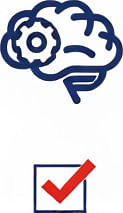Effective Daily Routines for Adults with ADHD
 by Verner Mayer
by Verner Mayer
Discover practical ways to create daily routines that support focus and energy for adults with ADHD. Learn simple strategies to build habits that reduce overwhelm and boost daily success, making life more manageable and fulfilling.

Many adults with ADHD often face challenges in keeping up with daily tasks, but building routines can offer a steady path forward. This approach helps in creating structure that fits personal needs. For instance, starting the day with a clear plan can make a difference.
One key technique is time blocking. This involves setting aside specific periods for activities, like work or meals. Time blocking allows for breaks and reduces the pressure of an endless to-do list. Another helpful method is breaking tasks into smaller, achievable steps. This way, large projects feel less intimidating and progress becomes easier to track.
In practice, mornings can set the tone for the rest of the day. Begin with a simple ritual, such as a short walk or a healthy breakfast. These habits build momentum and prepare the mind for what lies ahead. Evenings are equally important for winding down. A consistent bedtime routine, perhaps including reading or light stretching, supports better rest and renewed energy for the next day.
Tools play a vital role too. Using apps or planners to track routines can simplify things. For example, a basic notebook or digital reminder system keeps everything in one place. It's essential to choose methods that align with individual preferences, ensuring they feel supportive rather than restrictive.
Tips for Getting Started
To make routines stick, start small. Pick one or two changes at first, like setting a fixed time for checking emails. Over time, add more elements as comfort grows. Accountability can also aid progress; sharing goals with a trusted friend or partner provides gentle encouragement.
Challenges may arise, such as distractions or low motivation, but viewing these as normal parts of the process fosters resilience. Remember, flexibility is key—adjust routines when needed to maintain balance. Resilience in this context means adapting without self-criticism, turning setbacks into learning opportunities.
Ultimately, these strategies aim to enhance daily life, offering a sense of control and achievement. By incorporating them gradually, adults with ADHD can find routines that work uniquely for them, leading to greater satisfaction and ease in everyday activities.
